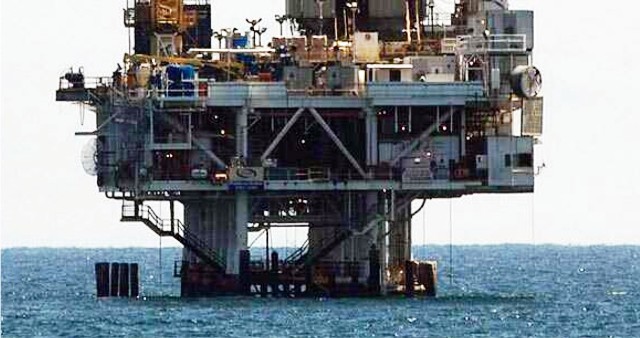Editorial
That FG’s Directive To Oil Firms

The Vice President, Prof. Yemi Osinbajo, penultimate week, while acting for President Muhammadu Buhari who was on a medical vacation, directed major oil and gas companies operating in the Niger Delta region to relocate their operational headquarters to the region.
Osinbajo who was ostensibly reacting to agitations emanating from his interactions with stakeholders during his tour of states in the region, said it has become imperative for these companies to relocate their operational bases to states where they carry out their exploration activities in order to be in touch with realities on ground.
Apparently piqued by the lackadaisical disposition of these multinationals, Osinbajo charged them to be responsive to the well-being of the host communities as well as protect the environment in which they operate.
Osinbajo’s call came barely two weeks after an alert by the senator representing Rivers East Senatorial District, Senator George Thompson Sekibo, that a major oil firm operating in Rivers State, the Shell Petroleum Development Company (SPDC), had concluded plans to vacate its operational headquarters in Port Harcourt.
That move by SPDC which, expectedly, hardly got public approbation, drew widespread remonstrance in the Niger Delta region – all of whom saw the company’s rather unholy move as adding insult to injury.
The furor caused by Shell’s plan was yet to come down before Osinbajo’s interview, even if somewhat belated.
The Tide, ipso facto, endorses the Federal Government’s directive to the oil firms as it will, in the long run, enhance the economic fortunes of the Niger Delta region and accelerate its human and infrastructural development.
We recall that the Rivers State Government had, to no avail, urged companies thinking of relocating their operational headquarters to jettison such plans.
The Tide thinks that if these oil firms strictly adhere to the Federal Government’s directive, more vistas of opportunities would be opened for the people of the Niger Delta region in the area of employment and manpower development. It will also help in the sustenance of the delicate peace and security now experienced in the region.
Added to that, the Local Content initiative should be strictly followed, just as a review of the General Memorandum of Understanding (GMoU) or the Memorandum of Understanding (MoU) between these companies and their host communities has become imperative. Here, a cue can be taken from Indorama and the host community, Eleme in which the later are partakers (equity shareholders) of the former.
It is in this sense that we want the speedy passage of the Petroleum Industry Bill (PIB) to ensure full participation of oil – bearing communities in the oil and gas industry.
Still, a review of the annual rent and compensation for economic crops and trees in the exploitation of oil and gas in consonance with global standards has also become inevitable.
As it is, the Federal Government must muster sufficient political will in its dealings with multinational corporations who have, for so long, taken their host communities for granted.
Even at that, The Tide enjoins the people of the Niger Delta region to provide the enabling environment by ensuring that peace and security thrives in the region.
Editorial
Resolve Rumuwoji Market Issues, Others

Editorial
As NDG Ends Season 2

Editorial
Beginning A New Dawn At RSNC

-
Politics4 days ago
2027: NIGERIANS FAULT INEC ON DIGITAL MEMBERSHIP REGISTER DIRECTIVE
-

 Environment4 days ago
Environment4 days agoLAWMA Director Says Sweeping Reforms Have Improved Waste Collection
-
Politics4 days ago
LP Crisis: Ex-NWC Member Dumps Dumps Abure Faction
-

 Politics4 days ago
Politics4 days agoUmahi Dismisses Allegations On Social Media, Insists On Projects Delivery
-

 Sports4 days ago
Sports4 days agoAbia Not Sure To Secure continental Ticket
-
Politics4 days ago
NATASHA ELECTRIC VEHICLES INITIATIVE IN KOGI CENTRAL
-
Sports4 days ago
La Liga: Yamal Records First Career Hat-trick
-
Politics4 days ago
IT’S A LIE, G-5 GOVS DIDN’T WIN ELECTION FOR TINUBU – SOWUNMI

